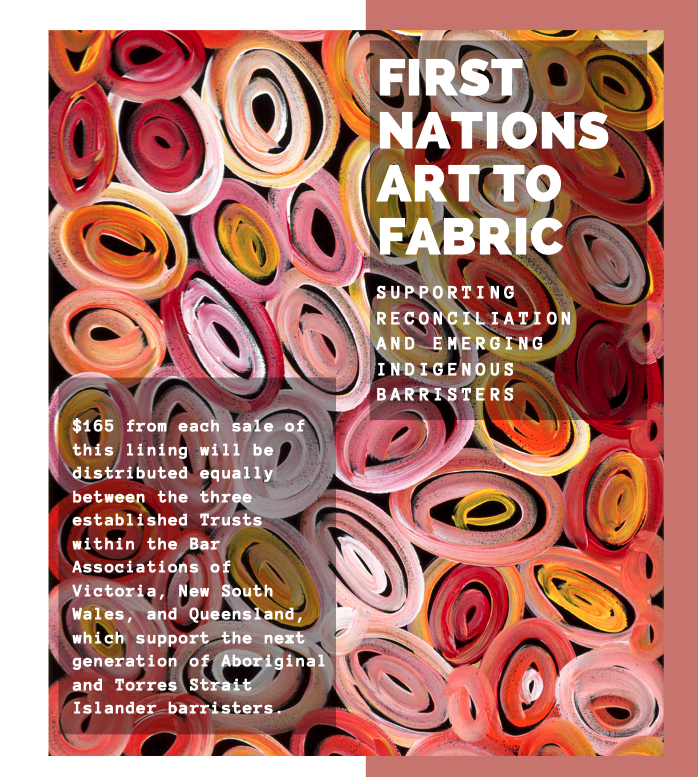FCFCOA Expansion of the Lighthouse model - Update to the Profession #2
10 November 2022
The Federal Circuit and Family Court of Australia (Division 1) and the Federal Circuit and Family Court of Australia (Division 2) (the Courts) are delighted to provide a second update in preparation for the commencement of the expanded Lighthouse model and the Evatt list. This update will focus on Lighthouse risk screening, including Family DOORS Triage, what happens when an eligible proceeding is filed and what happens next. You can also find out more in the first Update to the profession: Expansion of the Lighthouse Model.
When an Initiating Application seeking parenting only or parenting/financial orders is filed on or after 28 November 2022, or a corresponding Response is filed, parties will be asked to complete the Courts’ bespoke risk screen, Family DOORS Triage. By encouraging your client to undertake the Family DOORS Triage questionnaire, you are strengthening your client’s support in navigating the family law system. Completing the risk screen at the earliest opportunity will assist the Courts to ensure your client’s matter is directed to the most appropriate case management pathway.
Risk Screening
What is risk screening and Family DOORS Triage?
Risk screening refers to the process taken to identify the likelihood of harm or exposure to a type of harm experienced by a party or their child(ren) in family law proceedings. This process involves completing an online risk screening or questionnaire called the Family DOORS Triage. Children do not participate in the risk screening process, however the risk screen includes questions to identify any concerns or risks in relation to the children.
Family DOORS Triage is an evidence-based universal screening framework developed to assist with detection of risk and support the development of tailored responses. The risk screen considers a range of safety risks that frequently arise in family law proceedings including family violence, mental health issues and drug or alcohol misuse and has been specifically developed for use in the family law system and the Courts.
It is safe to screen. Screening responses and referrals are confidential and inadmissible in court. The other party, legal representatives and the Judge, Senior Judicial Registrar or Judicial Registrar will not see or have access to the answers or referrals and they cannot be used as evidence in court. Sections 10Q—10W of the Family Law Act 1975 (Cth) protect the confidentiality and inadmissibility of this information. For more information see the Lighthouse expansion – General fact sheet.
For further information on risk screening see:
Are there any changes to the material needed when filing?
No, no additional documents or special notification is required when filing.
To assist the Court, please ensure that your client’s personal contact details are provided when filing an Initiating Application or Response on the Commonwealth Courts Portal. These details are only used for risk screening. Beyond that, the Court will continue to contact the legal representative on record for all other issues.
There is a separate section on the Commonwealth Courts Portal to provide these details for the purposes or risk screening only. If you do not enter your client’s details, or enter your own details in their place, you will be contacted by the Lighthouse Team to request your client’s personal contact details for the purpose of the risk screening process via an online form.
At the earliest stage of a matter coming before the Court, you should ensure that you speak to your client about risk screening and the benefits of undertaking the screen. The Courts have a fact sheet about the risk screening process which can be used.
Parties are encouraged to refer to the Central Practice Direction – Family Law Case Management and Family Law Practice Direction – Parenting Proceedings for information on the risk screening process which will be updated upon commencement of Lighthouse on 28 November 2022.
How is the risk screen sent?
The Risk screen is sent via email to your client’s nominated email address within 2 days of filing an eligible Initiating Application or Response. The email will contain the link to the risk screen and the client’s personal login details. Where there are multiple Applicants and/or respondents each party will receive a risk screen. Reminders will also be sent via email and SMS as access expires after 10 days.
The online platform is secure and the risk screen can be completed safely and conveniently using a computer, mobile or tablet. The risk screen will take approximately 15 minutes to complete. All of the questions seek a ‘yes’ or ‘no’ reply rather than any specific detail or examples. Should your client or a party require assistance to complete the risk screen they can contact the Lighthouse Team. You can also assist your client to undertake the risk screen; however, it is not appropriate that you complete the risk screen on your client’s behalf.
The risk screen is voluntary to complete; however, your client is encouraged to complete the risk screen at the earliest point in time. Even if it is perceived that there is no or little risk in the matter, completing the risk screen also supports the Courts to identify the most appropriate case management pathway for a matter based on the level of risk identified. It will also assist with the timely progression and resolution of your client’s case.
Triage and Case Management
The risk screen responses will enable the Courts to identity any family safety risks that your client or their child/ren may be experiencing. After risk screening, the Lighthouse Team review the risk screen responses to identify the level of risk; this might include further reviews and risk assessment by Triage Counsellors.
The matter is then considered by a Judicial Registrar to assess the steps needed for future management of the case. This may include placing the matter onto the Evatt List.
High risk matters
Matters where a high level of risk has been indicated will be referred for immediate action with a Triage Counsellor who will provide a tailored, clinical review. The Triage Counsellors are highly qualified professionals, who are either psychologists, social workers or hold a relevant social science degree (such as counselling). They have extensive clinical experience working with children and families across a range of areas, including working with children and families who have experienced family and domestic violence.
All matters which have been identified as high risk will be reviewed by a skilled Triage counsellor to ensure that a tailored, clinical follow-up is conducted which includes a detailed risk assessment, safety and wellbeing plans and service referrals. This will often include being invited to attend an interview with the Triage Counsellor to further explore concerns and risks raised. This entire process is confidential. For further information, see the Triage Counsellor fact sheet.
High risk matters may also be referred to an Evatt Judicial Registrar for consideration to be placed onto the Evatt List, or such other case management pathways most appropriate according to the level of risk, such as the Magellan List or Indigenous List. As the risk screen is confidential and inadmissible under sections 10Q—10W of the family Law Act 1975, the Judicial Registrar does not view the confidential material.
Medium and lower risk matters
Your client will be provided with a copy of their confidential responses and safety and wellbeing plan that has been created based on their responses via email shortly after completion of the risk screen. Medium and lower risk cases will be considered for a range of case management pathways, including dispute resolution, in accordance with the Central Practice Direction – Family Law Case Management.
In all matters, you must ensure that the material filed addresses any risks your client is experiencing to ensure that the matter is directed onto the most appropriate case management pathway.
Data and Observations
Our experience throughout the pilot has shown that the legal profession has been embracing this world leading model. During the pilot, the Courts have observed high rates of screening. Since commencement, 94% of all matters filed have at least one party being invited to complete the risk screen, and 7 out of 10 eligible matters have completed the risk screen.
Feedback and findings have constantly reported that the opportunity to complete the risk screen questions and seek assistance in a confidential space is highly valued with most parties indicating that the primary motivation to complete the risk screening was to ‘raise concerns’.
“[the triage counsellor’s] knowledge and level of experience far outweighed anyone I’ve spoken to… [they] were straightforward and didn’t just tell me the answers I wanted to hear, I saw some light at the end of the tunnel when I spoke to [them].”
Litigant whose screen was high risk.
Since commencement, Triage Counsellors have conducted over 1500 triage interviews, with parties viewing the opportunity to speak with a Triage Counsellor as a key benefit to completing the risk screen. An anonymised case study of an actual high-risk matter is included in this update.
Further information
See the following fact sheets for more information about risk screening and triage counsellors:
Next week the update will focus on the Evatt List.
Information sessions will be held as follows:
The Courts welcome questions for the presenters in advance and these can be sent to Lighthouse@fcfco.gov.au
The Honourable Justice William Alstergren AO
Chief Justice — Federal Circuit and Family Court of Australia (Division 1)
Chief Judge — Federal Circuit and Family Court of Australia (Division 2)
|
Evatt List — Case Study
The legal representative filed on behalf of the Applicant grandparents an initiating application seeking urgent parenting orders in respect of two young children.
The Family DOORS Triage questionnaire was completed and risk regarding the Applicants’ and children’s safety were identified. Upon speaking with a Triage Counsellor, additional risk factors of criminality, neglect, family violence and alcohol issues were identified. The matter was placed on the Evatt List within 14 days of filing. As part of the triage process, the Applicants were provided with information and resources to support the subject children through the proceedings and provided referrals to external safety planning agencies.
In recognition of the complexities of the matter, additional resourcing and support was provided by the Court, resulting in interim orders being made in relation to the immediate care of the children, the appointment of an Independent Children’s Lawyer, material being requested from local police and child welfare authorities and the provision of a section 62G report.
Tailored case management was provided through regular court events and close management of the proceedings to ensure that careful progression through the family law system could occur. By virtue of this approach to case management, interim orders for time with the Respondents were able to be ventilated and tested between the parties, ultimately resulting in the finalisation of the complex matter within 8 months of filing. Feedback from the Applicants was provided to the Court at the conclusion of proceedings noting the positive impact placement on the Evatt List had provided.
By the legal representatives encouraging their clients to complete the Family DOORS Triage questionnaire and following inclusion on the Evatt List, the following positive outcomes were achieved:
- Enhanced and strengthened support was afforded to their clients
- The close management of the matter enabled the complexity, issues and needs of the case to be identified very quickly after filing, and the matter to progress promptly and efficiently without delay
- The legal representatives were able to improve their clients’ experience of the litigation process without increasing the risk of emotional stress or trauma.
|
View the PDF here


.png)
